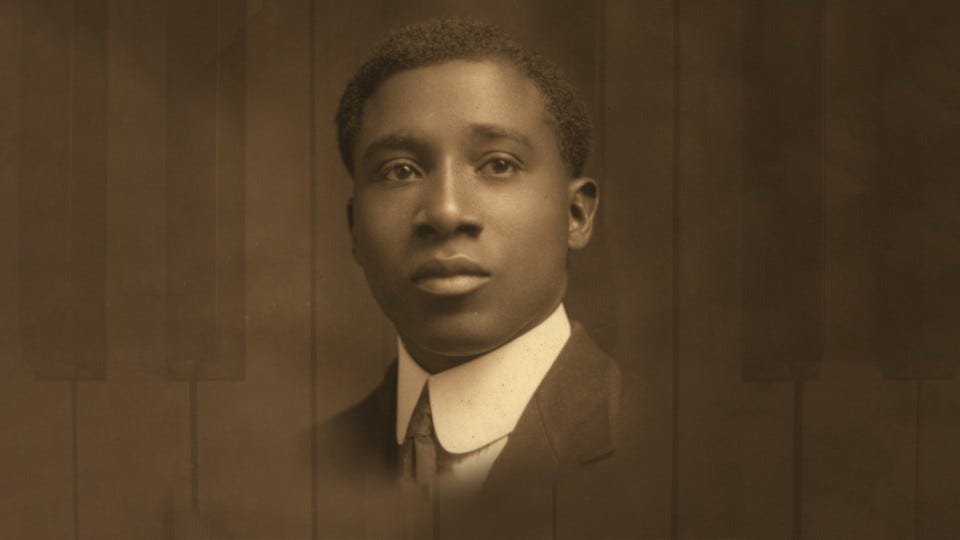
The composer Robert Nathaniel Dett was born near Niagara Falls, Ontario, to a Canadian mother and American father. He began playing the piano by age three and showed an early aptitude. The family moved across the border to Niagara Falls, NY, when Dett was nine and was known to play piano for the local church. He attended Oberlin Conservatory and it was there that he first heard the music of Antonín Dvořák and was inspired to use spirituals as a source material for his own compositions. Dett would graduate from Oberlin with a degree in composition and piano in 1907. After graduation, Dett would have a considerable career in education, teaching at Lane College in Tennessee, the Lincoln Institute in Jefferson City, Missouri, and he became the first black director of music at the Hampton Institute in Virginia. He would teach there for twenty years.
His first compositions to gain recognition are his piano works Magnolia Suite and In the Bottoms from 1914. Both extraordinary works, they reveal a composer who is capturing the same harmonic language that one is hearing in Debussy but through an uniquely American lens. Dett’s later piano works show a mature master composer, writing in a style that reflects his enormous experience and wealth of a lifetime of learning and knowledge. Tropic Winter, The Cinnamon Grove, and Eight Bible Vignettes are works that perfectly capture this unqiue voice and unforgettable composer. This recording of the complete piano works is truly wonderful.
A true intellectual and lifelong learner, Dett pursued educating himself for his entire life. During the summers he would attend national institutions and in 1920–21, he studied composition with Arthur Foote at Harvard University, winning the Francis Boott award for his composition Don’t Be Weary, Traveler. Also, he won the Bowdoin prize for his essay “The Emancipation of Negro Music.”
Dett became a noted composer and arranger of spirituals, receiving prizes for his many contributions to the artform.
In 1929, Dett traveled to France to study composition at the Fontainebleau School with Nadia Boulanger and earned a masters in music degree from the Eastman School of Music in 1932. In 1937 he composed the oratorio, The Ordering of Moses, and was premiered by the Cincinnati Symphony Orchestra at the Cincinnati May Festival. This is a recent recording of a truly original piece.
